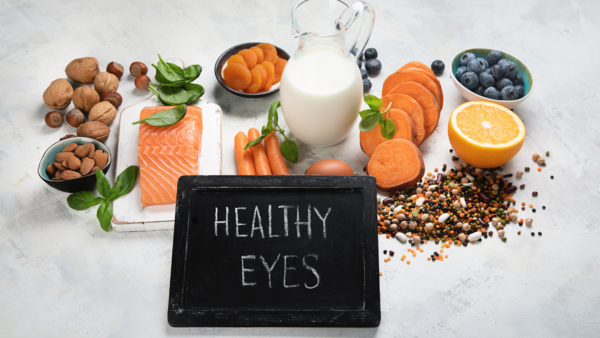Diet for eye health
Maintaining a healthy, well-balanced diet is indeed essential for overall health, and certain foods have been associated with potential benefits for managing glaucoma. Green leafy vegetables, such as kale and spinach, are rich in nutrients like vitamins A, C, and antioxidants like lutein and zeaxanthin, which may help protect against oxidative stress in the eyes.
While research suggests a lower risk of
glaucoma
in those who consume more leafy greens, it’s important to note that these findings don’t establish a direct cause-and-effect relationship.
Munch nuts and seeds
Nuts and seeds are excellent sources of vitamin E, which can help maintain healthy cells and protect them from free radical damage. Additionally, some nuts like almonds and pistachios contain high levels of lutein and zeaxanthin, further supporting
eye health
. Fruits and vegetables are also beneficial, providing vitamins A, C, and antioxidants crucial for protecting the optic nerve and other eye tissues from damage associated with glaucoma. Studies have shown a potential correlation between higher fruit intake and a lower risk of glaucoma.
Stock up on magnesium
According to Suvarna Sawant, Chief Dietician, Nanavati Max Super Speciality Hospital, “Magnesium-rich foods like bananas, avocados, pumpkin seeds, and black beans may help improve blood supply to the eyes, potentially benefiting individuals with glaucoma. Including omega-3 fatty acids from fish in the diet is also recommended for their anti-inflammatory properties, which could aid in managing glaucoma.”
Prevent obesity
Conversely, individuals with glaucoma should be cautious of foods that contribute to metabolic syndrome, obesity, high blood pressure, and diabetes, as these conditions can exacerbate the risk and progression of glaucoma. Diets high in carbohydrates have been associated with a greater risk of glaucoma, while lower carbohydrate intake may correlate with a reduced risk.
The takeaway
While these dietary recommendations may support overall eye health and potentially aid in managing glaucoma, it’s essential to consult with a healthcare professional for personalized advice tailored to individual needs and health conditions. A balanced approach to nutrition, combined with other lifestyle factors like regular exercise and proper
eye care
, can contribute to maintaining optimal eye health and potentially slowing the progression of glaucoma.
World Oral Health Day 2024: Dr. Vaibhav Kumar offers deep insights on why inclusion is important in India’s oral healthcare infrastructure
